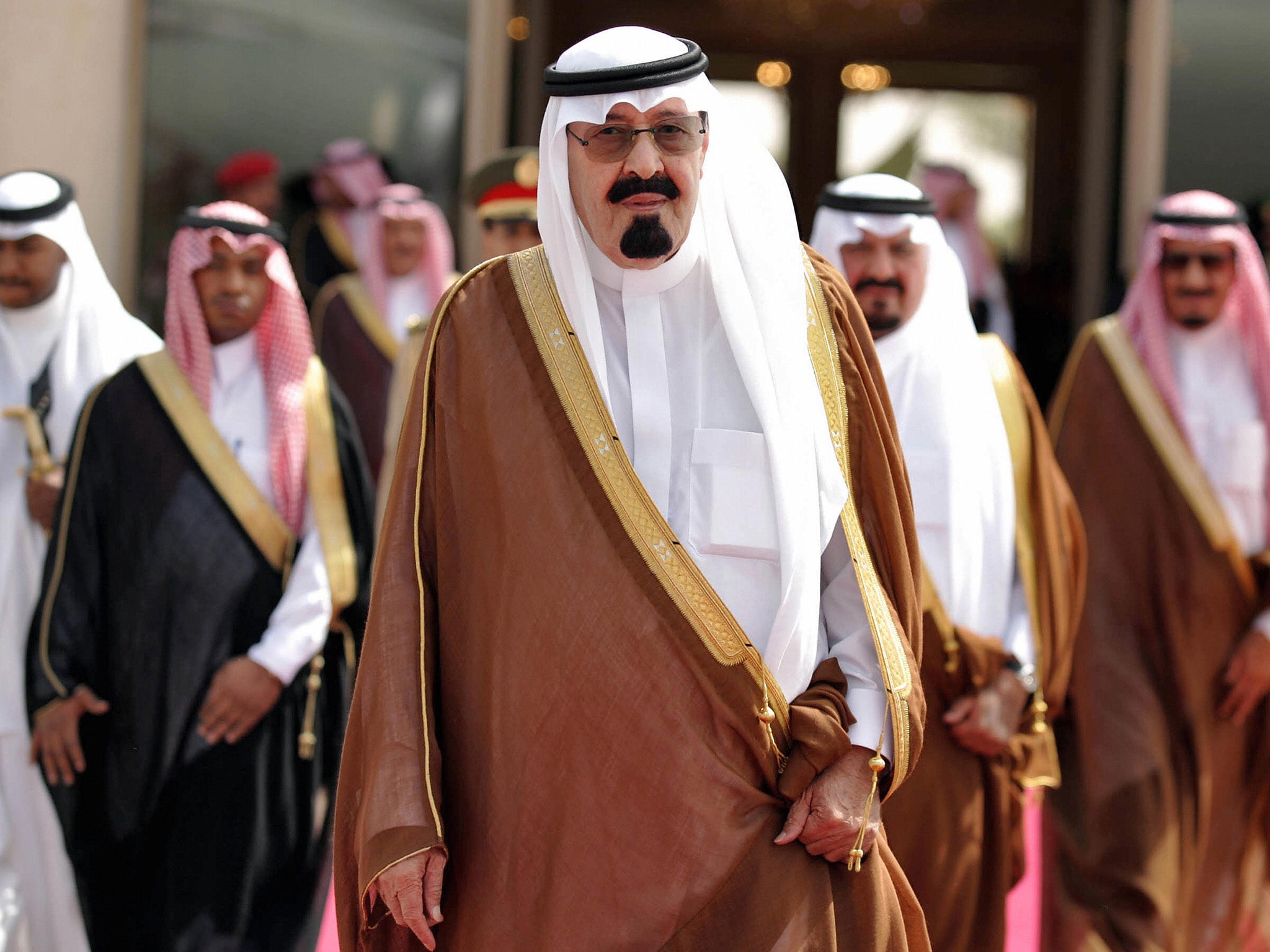Theresa May should expel Saudi Arabia from the UN Human Rights Council, but that's not enough to absolve the UK
Despite international condemnation of the Saudi regime, it is Britain who still sleeps on the sofa, desperate to save its failing marriage

Britain and the Saudis have been in bed together since the First World War. In 1915, Ibn Saud signed the Treaty of Darin with Asquith’s government, accepting the status of a British protectorate. Now the Age of Empire may be over, but the UK is just as invested in its relationship with the Middle East’s economic powerhouse.
In recent years, on the watch of the international community, the couple’s marriage has come under some strain. Britain has increasingly found herself struggling to defend Saudi Arabia's sordid abuse of human rights: beheadings for homosexuality, mass execution, detainment of activists, misogyny and a vicious crusade against Yemen, which Amnesty International condemned as breaching international rules on the use of force.
Yet it is Britain that sleeps on the sofa, desperate to save its failing marriage and uphold its the various trade deals it has signed with the quasi-pariah state. In 2005, the lovers embarked on a nuclear arms deal. Again, in 2014, British defence firm BAE won a contract worth £4.4bn to supply the Saudis with 72 fighter jets – some of which were used to bomb Red Cross and MSF hospitals in Yemen. The former Prime Minister David Cameron, as recently as January, called the Saudis our “close allies”. Does Theresa May think the same way?

On 13 September she will have her chance to make her voice heard – or so say the activists and pressure groups who, on World Humanitarian Day, are calling for May to vote against Saudi Arabia retaining its membership of the UN Human Rights Council. It is paradoxical that a country with one of the worst records is even party to an institution which sets and monitors human rights standards.
The UN has called the war in Yemen a “human catastrophe” which has claimed 6,500 lives so far; Save the Children reports that one in three Yemeni children are suffering from malnutrition, while Amnesty and Human Rights Watch say they have identified 69 unlawful air strikes, some of which may amount to war crimes, killing at least 913 civilians. It is no surprise, then, that Amnesty International demands that the UK hold Saudi Arabia to account for “it’s appalling human rights record and the on-going war crimes in Yemen”. But will it do this by merely booting it out of the HRC?
The simple answer is “no”. Yes, the Saudis must go. Get them out. But if we continue our trade deals, our military support for the nation, then our Prime Minister's vote would amount to a meaningless exercise in political theatre. King Salaman won’t be too heartbroken to exit the council, though he would toss and turn in his sleep at the thought of brutal economic sanctions – not least since the price of oil is at an all-time low.
Like the forbidden love in Shakespeare’s Romeo and Juliet, the British elite and Saudi royals' ill-fated affair is a blood-sodden tragedy. Things must come to an end, and quickly.
Theresa May has the opportunity to take a different course of action. But, as she votes in a few weeks’ time, she should remember that a red card on the international playing field is one thing, but parting ways for the last time at the bedroom door is quite another.
Join our commenting forum
Join thought-provoking conversations, follow other Independent readers and see their replies
Comments
Bookmark popover
Removed from bookmarks